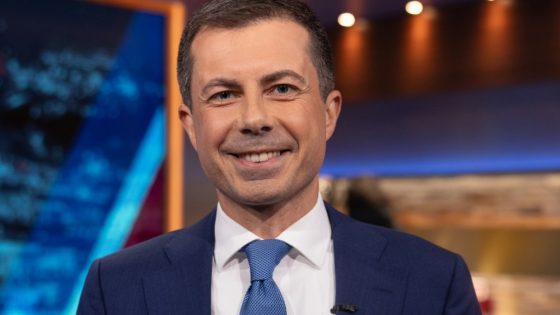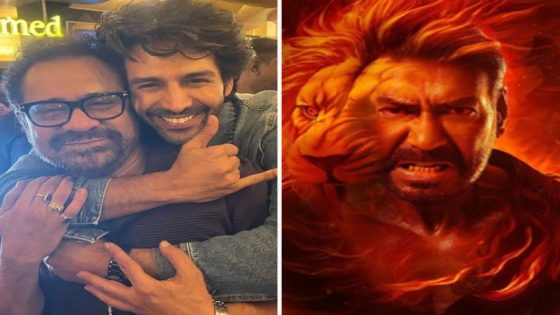Much of Pete Buttigieg’s interview with Jon Stewart on “The Daily Show” Monday night was consumed with Stewart’s speculation that Buttigieg is being vetted as a potential vice-presidential candidate. Buttigieg did not deny the notion, but parried by saying that, generally, being vetted for a political post is like being vetted to become a parent through adoption, as he and his husband had.
It was yet another example of the very particular skill Buttigieg has; more than any of his peers, he’s effectively a made-for-TV politician. This isn’t to say he’s, necessarily, callow or slick, though he certainly has a preternatural smoothness. He simply has the debater’s skill of speaking in an unbroken and unbreakable rhythm, thereby allowing the terms of the conversation to shift to whatever is on his mind. Asked by Stewart, for instance, why he keeps going on Fox News, Buttigieg spoke about the value of meeting not-necessarily-like-minded voters where they are, slipping in “that’s how I won Iowa” so deftly it felt practically subliminal.
Buttigieg’s appearances on Fox News, as much as Minnesota Governor Tim Walz’s repetition of the idea that the members of the Republican ticket are “weird,” or Kentucky Governor Andy Beshear saying that vice-presidential candidate, and “Hillbilly Elegy” author, JD Vance is “not from here,” have become part of the fabric of this strange, fraught, potential-rich moment. For a vanishingly short window of time, thanks to the abbreviated nature of Kamala Harris’ run for the presidency, these individuals have the opportunity to campaign for her while campaigning for themselves — proving their value as surrogates while, of course (of course!), keeping the focus on the principal. (Buttigieg also showed an ability to get with the program, critiquing “how odd [Vance has] turned out to be,” in line with the “weird” talking point that the party has begun rolling out widely.)
Is Buttigieg appearing on Fox News an admirable attempt at trying to break through to potentially winnable moderates or conservatives? Why not! (His point, to Stewart, that while he doubts the network is operating in good faith, its viewers are watching in good faith, is well-taken.) Can it also be read as an attempt to prove his own mettle? It’s hard to watch his recent “Fox News Sunday” appearance, in which he managed to completely steer the conversation, peppering in so many ripostes against Donald Trump that Shannon Bream simply could not respond point-by-point, and not see a sort of merry ambition. And on Bill Maher’s “Real Time,” notionally a lighter-hearted setting, Buttigieg tailored his approach slightly, dismantling Vance’s self-presentation and the tech industry’s support of Trump with a grin on his face.
Which is hardly a groundbreaking insight: All politicians are ambitious, perhaps few more so than the mayor of a small Indiana city who, on the basis of exactly that much electoral experience, decided to run for president. His run then was fueled, first, by his willingness to appear on-camera for any media outlet willing to have him (and, given the novelty of his story, from his sexuality to his Rhodes scholar/veteran background to the office he held, many were). Now, he’s being booked not because he’s Joe Biden’s Secretary of Transportation, an office in which his wins are by their nature small-bore and tangential to the grand sweep of presidential politics, but because he is known to be good on camera.
What’s interesting about Buttigieg in this moment — beyond how naturally talented he is at being on television — is the question of how far this talent will take him. Whatever is Buttigieg’s substance has, in 2020 and today, always come second to his style, his ability to break down the case for the Democratic Party in clear and relentless English. Whether tapped as Harris’ running mate or not, he seems likely to remain in a unique position: The guy who — very naturally and well, with the sort of earnestness one would like to say you can’t fake — plays a Democrat on TV.
Source Agencies



